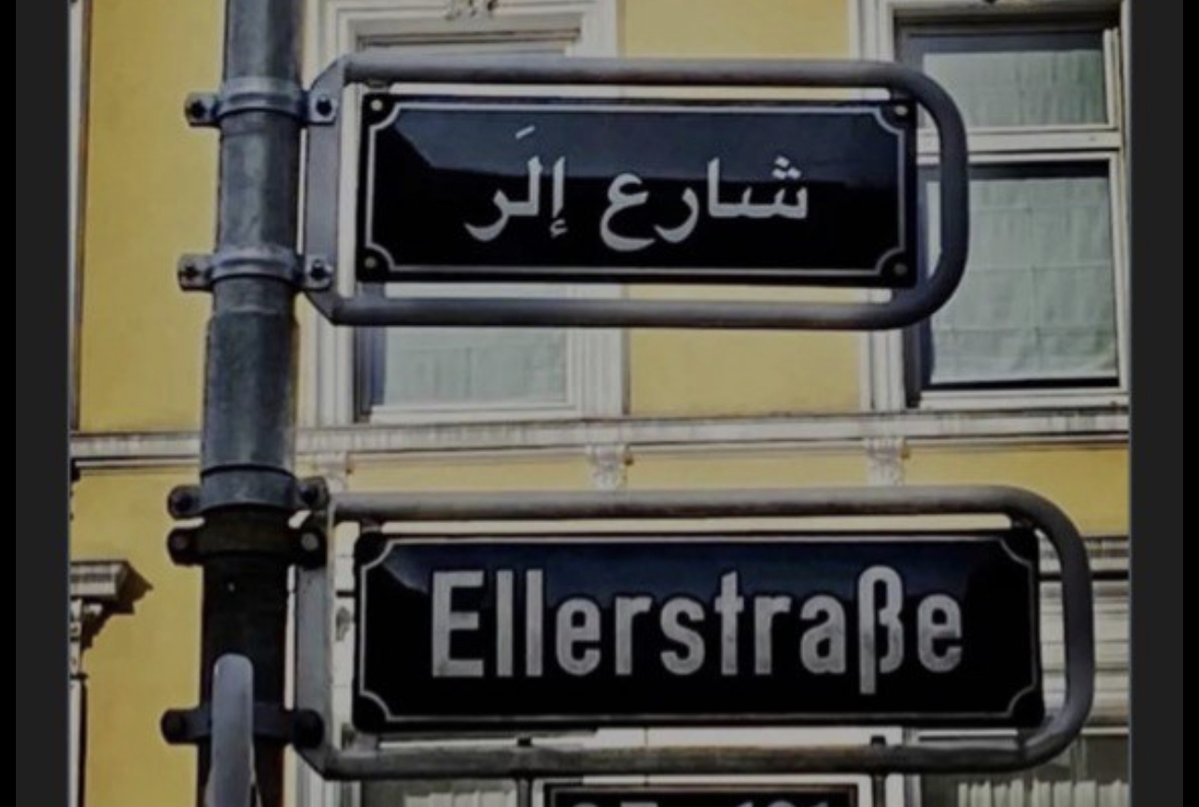Germany’s first Arabic-language street sign has appeared in the city of Düsseldorf, and Islamic associations and the Green Party are praising the new development.
“Bilingual street signs are also a symbolic expression of social inclusion. They show that people identify with their district and the diversity of their district,” the city’s Green Party wrote in a statement.
“For several generations, many people, families and tradespeople with a Moroccan and Maghreb background (who) helped to build (Germany) have lived in the district, the Greens wrote, adding that “they deserve respect, admiration and representation.”
[pp id=62869]
The chairman of the Central Council of Muslims in Germany, Aiman A. Mazyek, wrote on Twitter that Düsseldorf is showing “diversity and showing respect for immigrant Germans.”
Some criticized the decision on Twitter, with Ali Utlu writing, “Ellerstrasse in Düsseldorf/Oberbilk. The Arabization of Germany is progressing. German is the only official language in Germany. Neither Klingon nor Arabic.”
Moroccan Consul General Lalla Loubna Ait-Bassidi also praised the process: “I am grateful that integration is being expressed in a way that people from 20 Arab nations can read and understand. The sign symbolizes that the migrants are recognized and stands for the diversity of Düsseldorf, one of the most diverse cities in North Rhine-Westphalia.”
Ten more street signs are planned, and there are multilingual signs in other German cities, including Düsseldorf, which also has a Japanese street sign.
Pew Research indicates that Europe’s Muslim population could triple over the next 30 years, rising up to 75 million. This is similar to the United States, where the share of the Hispanic population has increased dramatically and the Spanish language has become prevalent in state documents and road signs in Arizona, California, Florida, New Mexico and Texas. Such a development could occur in Europe as well if the continent’s population continues its demographic trends.
Recently, German-Iranian author and commentator Behzad Karim Khani said migrants are not only going to stay in Germany but will eventually “inherit Germany” from ethnic Germans, who are “dying off.”






